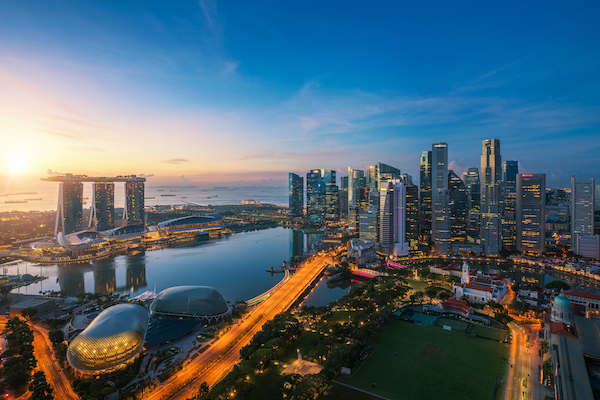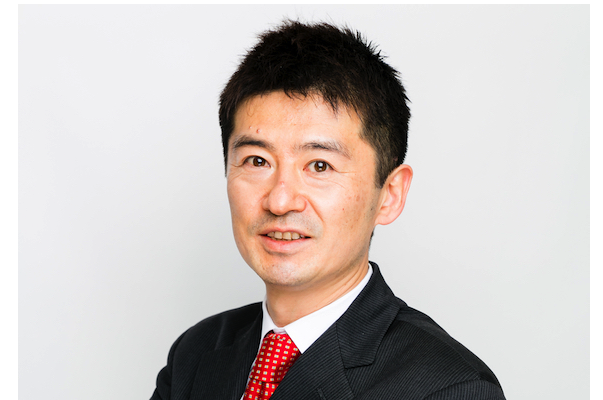Investment volume in Asia Pacific is expected to remain subdued in the first six months of 2022 and increase moderately in the second half of the year, according to Hok Yean Chee, president of Asia Pacific for HVS.
Chee told HOTELS in November that the broader market expectations are also positive as the world is adapting to the new normal and fuels hope for tourism recovery, albeit at a slower pace in 2022. “As the outlook of Asia Pacific becomes more certain, with governments adapting a ‘living with COVID-19’ strategy, we see that there might be an overall increase in transaction volumes in 2022 as investors readjust their expectations,” she said.
At the same time, Robert Hecker with Horwath HTL in Singapore thinks there will definitely be some increased activity in the first half of 2022, but will mostly be focused in Japan and Australia. “The rest of the region, I expect, will not see that much activity, except perhaps in the Maldives. There will only be a spattering of deals around Southeast Asia. It’s mostly a consensus on this,” he said. “There are a few players focusing on places like Thailand with high expectations, but I expect the opportunities will ultimately be limited.”
In this last in a four-part series, HOTELS spoke to multiple Asia Pacific M&A experts to get their take on 2022 deal activity. Click here to read the Overview; here for the U.S. M&A outlook; and here for the deal outlook for Europe.

What is the appetite for acquisition in Asia Pacific?
Robert Hecker, Horwath HTL: There’s plenty of interest at the moment, mostly driven by expectations for some distressed or at least discounted pricing (from 2019 levels), combined with expectations that a full travel recovery will be happening region wide within the next two years… There’s definitely an optimism for M&A activity to accelerate. Buyers with local teams in key markets for deals will have an advantage.
Hok Yean Chee, HVS: In 2020, transaction activity in the Asia Pacific took a hit from the new high in 2019, achieving a transaction volume of approximately US$9 billion worth of hospitality assets, indicating a 49% decline year-on-year. As of year-to-date Q3 2021, the transaction volume recorded remained relatively unchanged as compared to the Q3 2020 at approximately US$7 billion.
After a slowdown in 2020, the hotel investment in Asia Pacific held up well in 2021 and is poised for a growth trajectory. In general, investor appetite for acquisition is high, although the transaction volume might be muted due to price gaps between the buyers and sellers. This is especially so in more stable property markets where the major players who own grade A hospitality assets have the staying power to tide through the COVID-19 period.

We are of the opinion that the increasing investor appetite is partially due to the current window for rebranding and refurbishment of newly acquired properties in anticipation for the return of travel. We foresee that there will be a slow, steady recovery in the region, with the travel industry gradually returning in 2022, mainly driven by the vaccinated travel lanes and strong leisure demand.
The coronavirus pandemic has underscored the importance for investors to diversify their portfolio, whether the properties are located in gateway cities, resort destinations or countries with strong domestic demand.
Sen Soon-Mun, Horwath HTL, Kuala Lumpur: The last few hotel transactions pre-pandemic have come from Singapore, mainly opportunistic acquisitions. The attraction is mainly local branded hotels that are underperforming as well as well-located properties.
Zoe Wu, Horwath HTL, China: Developers are restricted by the current “three red line” policy, which curbed their cash flow and thus the ability to buy.
Nikhom Jensiriratanakorn, Horwath HTL, Bangkok: I have seen strong investment appetite among both local and international investors, but mainly in key hotel markets, especially Bangkok. Investors are looking at a long-term investment horizon and anticipating a growth potential of the Thailand capital from many mega-projects such as One Bangkok, the Asiatique Expansion, and the Bangkok Mall on the back of ongoing infrastructure upgrades. Coming out of the pandemic, the Suvarnabhumi Airport’s midfield satellite concourse and the mass transit network expansion will be ready to alleviate traffic congestion and handle growing travel and tourism demand.
Mandeep Lamba, HVS, India: Although there are signs that investors are assessing hotel assets, buyer interest in India continues to be limited as yields remain stressed and borrowing for the sector has become even more challenging than before.
Koji Takabayashi, Horwath Japan: While a pricing gap between current and prospective owners is wide and prohibiting in a way, some institutional investors are actively considering acquisitions of hotel assets, especially when a large portfolio is offered on market by Japanese established corporations, which was rare during the pre-COVID period.
What type of deals are most likely to get done?
Robert Hecker, Horwath HTL, Singapore: Smaller portfolios and single assets. Those with big portfolios tend to be the stronger players and are expected to hold on. There’s also not that many big portfolios, but plenty of diversity and spread amongst smaller portfolios and single assets.
Hok Yean Chee, HVS: While we observed more single asset transactions in 2020 and 2021, there are larger portfolio than smaller portfolio transactions as compared to past years.
Developers, investment managers and private equity firms were the active buyers in 2020 and 2021. The hotel investment has been dominated by local investors rather than cross-border transactions.
We believe that the hospitality buildings that will be transacted will mainly be in the “opportunistic” risk category. These will be assets which have not been able to adapt to the pandemic with agility, either due to the current configuration or due to sub-optimal management. The general strategy in fall 2021 was to acquire underperforming assets for refurbishment to take advantage of the upswing in anticipated tourism levels.
Although it would be optimal for investors to acquire grade A hospitality assets, we do not see this happening and this is likely due to the holding power of the owners of these assets.
In Hong Kong, we have seen transactions of underperforming hotels/commercial buildings with conversion to serviced apartment/co-living spaces.

Zoe Wu, Horwath HTL, China: All types are being looked at and discussed. R&F, which acquired Wanda’s portfolio, is now trying to sell – both as a portfolio or as individual hotels. Portfolio transactions are not common in China as most portfolios are owned by SOEs (state-owned enterprises). Portfolios that are in the hands of private owners may be looked at if institutional money becomes more active in China.
Nikhom Jensiriratanakorn, Horwath HTL, Bangkok: In 2021, a number of transactions were small- and medium-sized properties, worth less than THB 1 billion each. We are also seeing an increasing number of sizable deals in Thailand. Some corporations that are heavily invested in the hospitality industry need to divest some non-core assets to maintain sufficient liquidity throughout the pandemic.
Interestingly, we feel that there are signs of another consolidation of hotel operators in the Asia Pacific region. Lodgis Hospitality acquired the homegrown Glow Hotels & Resorts to expand its footprint from Vietnam to Thailand. In a similar fashion, another third-party operator in Asia Pacific was known to take over the Thailand-based hotel management company to enter the Southeast Asia region.
Mandeep Lamba, HVS, India: Due to the rapid recovery in India’s domestic leisure demand, interest in acquiring assets in leisure markets has surged, especially as supply remains restricted in this segment. Investors are likely to prefer operational assets or portfolio of assets to expand their footprint rather than greenfield or brownfield projects. Also, value deals where the lender and owner have both taken haircuts are the most likely to find buyers.
Koji Takabayashi, Horwath Japan: We have seen several large-scale portfolio transactions for the past couple of years, such as Kintetsu portfolio acquired by Blackstone and Japan Post portfolio acquired by Fortress. In addition, Seibu Holdings is now considering a sale of a part of their Prince Hotels portfolio. As the main business of these owners is not hospitality (such as railways), they are now selling their non-core assets to off-set COVID-influenced (negative) cash flows from their main businesses.
What are the ongoing barriers to deal making, and how likely are they to be overcome?
Robert Hecker, Horwath HTL, Singapore: The price gap between buyers and sellers. I don’t think availability of financing is considered to be a barrier. Evident improving market conditions could encourage buyers to value/offer higher. Creative deal structuring could also help, such as partnering rather than outright purchases, so sellers assume some risk, but have the opportunity to participate in cash flow/valuation upsides.
Hok Yean Chee, HVS: In fall 2021, there seemed to be some gaps between asking and offer prices that may have caused the transaction volume to be muted. Many investors believed that with the onset of the pandemic, there would be a slew of distressed assets primed for investment. However, there have not been any distressed sales in Asia Pacific.
In countries such as Australia and Singapore, the government issued vouchers to shore up the hospitality industry to boost occupancy and leisure-related activities. On top of that, most hotels proved to be adaptable in converting their rooms to quarantine facilities. We believe that the hungry investor expectation of much lower prices was not met.
There is also an abundance of caution in making deals as the recovery in the region might not be equal. There is the possibility of virus mutations, sudden surges in COVID-19 cases, delays in lifting border restrictions, differing rates of vaccine rollout across countries, uncertainty in the return of business travelers, and a challenging operating environment.
Zoe Wu, Horwath HTL, China: Price. Most owners still value their hotel assets based on commercial/office/residential values in the neighborhood. Thus, unrealistic pricing is one of the biggest challenges in the market. The ‘three red line’ policy may help propel a general understanding/acceptance of a more realistic valuation.
Nikhom Jensiriratanakorn, Horwath HTL, Bangkok: A gap in price expectation between buyers and sellers has been apparent in the marketplace.
Some hotel owners are not under any financial stress due to strong cash flow from non-hotel businesses, low leverage, established lender relationship and government support. They are not in a hurry to cash out assets and can wait for the right price that is in line with their expectation.
Meanwhile, investors have raised a cap rate expectation, bargaining for lower prices to provide a margin of safety as a buffer for market uncertainties during the pandemic.
For quality assets, with good vaccination progress and signs of optimism in 2022, investor interest will eventually pick up and the expectation gap will narrow, as such opportunities will not come up in a normal circumstance.
Alternatively, some sellers may opt for alternative vehicles such as REITs or joint venture partnerships, which allow them to continue asset ownership while reducing existing hospitality investment and improving overall financial health. In 2021, the market witnessed the disposal of Royal Orchid Sheraton Bangkok into a REIT with a buy-back option by Grande Asset. Singha Estate also secured a JV partner from Myanmar for the development of SO Sofitel Maldives.

Mandeep Lamba, HVS, India: Asset valuations have been challenging in a near-zero cash flow environment, and the spread between the ask and the offer prices has been widening. The buyers discounting on valuation on account of the COVID impact to the sector are not finding acceptance with the sellers.
Koji Takabayashi, Horwath Japan: From a deal-making point of view, current financial policy by the Japanese authority that banks keep their financing to hospitality asset owners under the current COVID-influenced market situation. In the meantime, as it has been almost two years since such government’s financial instructions started restricting banks’ loan decisions, a significant portion of hospitality assets might become non-performing if this situation continues in 2022. If such a case occurs, such non-performing assets will be put on transaction market and the number of deals will increase accordingly.
What is the state of the financing climate (debt availability)?
Hok Yean Chee, HVS: Debt across the Asia Pacific remains freely available, although banks may have preferences for lending to certain sectors instead of hotels. Lending for development projects is likely to tighten. Most lenders are more cautious towards hospitality assets. There has also been a rise in alternative capital providers, especially in North Asia, where private credit funds and asset management companies have been providing significant funding for investment deals. As outbound investment activity recovers, it will also bring in more lending opportunities into the market.
We feel that the players who are primed to capture the market will be those with a strong financial backing and who have a strong sustained financial record.
Sen Soon-Mun, Horwath HTL, Kuala Lumpur: Currently, extremely difficult. Tourism funding is available from government-linked banks, but the amounts available are insufficient.
Nikhom Jensiriratanakorn, Horwath HTL, Bangkok: The debt market is being tightened as banks remain cautious about lending to hospitality assets. Loans for new projects, especially greenfield developments, are difficult to obtain. However, with the guidance of Bank of Thailand, local banks are willing to support their existing owners by extending debt moratorium, and provide additional funding under various schemes such as asset warehousing and soft loans. Some international lenders are not as lenient and cooperative, causing owners to look for alternative funding.
We anticipate a critical turning point in the first half of 2022, given the reopening of Thailand from November 2021 onwards to welcome high season travels. Owners who cannot capitalize the first wave of travel demand nor keep the operation lean will inevitably face cost creep and profit erosion. Another subsequent outbreak and movement control could disrupt the country’s momentum and reputation, and quickly deplete hotel working capital. The need for additional funding will raise an alarm bell for lenders.
Mandeep Lamba, HVS, India: Debt funding for the sector has dried up, as lenders that were financing hotel projects are now stressed on account of their exposure to this sector and increasing fear of growing NPAs, given the severe drop in the ability of the borrowers to service their debt obligations. Other lenders are considering hotels as high risk and not looking to fund hotel projects. The overall outlook for raising debt currently is rather restrictive and lending, if at all, is at substantially higher interest and tighter terms.

